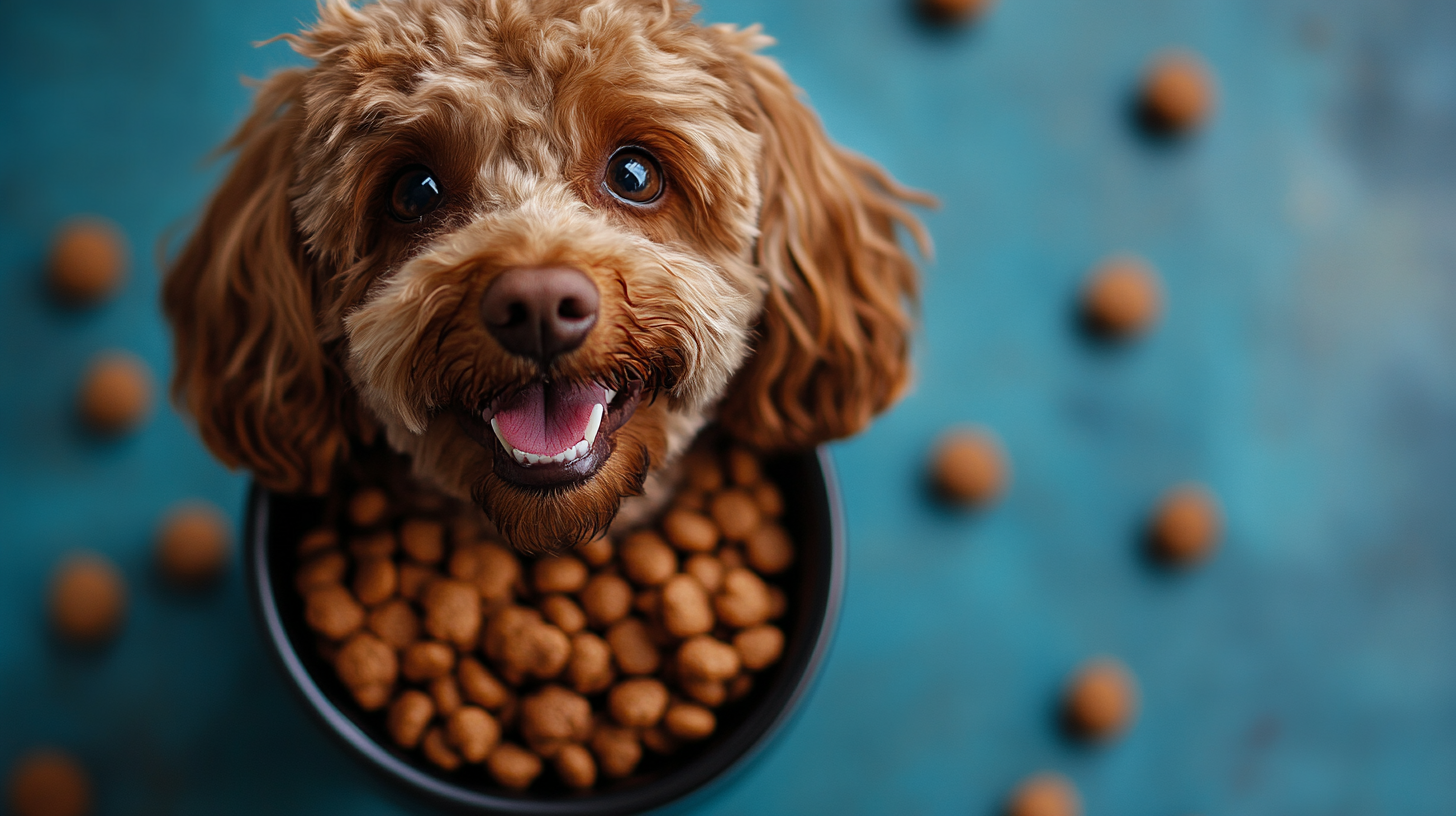Poodle Nutrition Guide: Feeding Your Furry Friend Right
3 min read
Poodles, known for their intelligence and elegance, come in three size varieties: Standard, Miniature, and Toy. Each size has unique nutritional requirements that help to support their health, energy levels, and overall well-being. This guide will explore the essential aspects of Poodle nutrition, including what to feed them, how much to serve, and tips on maintaining a healthy diet.
Understanding Poodle Nutritional Needs
Just like any other dog breed, Poodles require a balanced diet that includes proteins, carbohydrates, fats, vitamins, and minerals. However, their metabolism and energy levels can differ based on their size:
- Standard Poodle: Typically has a higher energy requirement due to its larger frame. They may require around 1,200 to 1,500 calories per day, depending on their activity levels.
- Miniature Poodle: Generally needs around 800 to 1,200 calories per day, with a focus on maintaining a healthy weight to avoid joint issues.
- Toy Poodle: As the smallest variety, Toy Poodles require about 400 to 600 calories daily, with an emphasis on nutrient-dense foods to meet their energy demands.
Key Components of a Balanced Poodle Diet
- High-Quality Protein: Poodles are active dogs and require protein for muscle maintenance and energy. Look for dog food with meat, fish, or poultry as the first ingredient.
- Healthy Fats: Essential for energy and skin health, omega-3 and omega-6 fatty acids should be included in their diet. Sources such as fish oil, flaxseed, and chicken fat are beneficial.
- Carbohydrates: While dogs can digest carbohydrates, they should come from whole grains, vegetables, and fruits to provide fiber and essential nutrients.
- Vitamins and Minerals: Vitamins A, D, E, K, and B-complex, along with minerals like calcium, phosphorus, and potassium, are vital for overall health. Ensure the dog food is fortified with these nutrients.
Feeding Guidelines
- Choose the Right Food: Select a dog food that meets AAFCO (Association of American Feed Control Officials) standards. You can opt for commercial dry kibble, wet canned food, or fresh homemade meals, provided they are nutritionally balanced.
- Portion Control: Follow the serving sizes on the food packaging, adjusting the quantity based on your Poodle’s weight, activity level, and age. Monitor their body condition to prevent obesity.
- Frequency of Feeding: Puppies typically require three to four meals per day, while adult Poodles may benefit from two meals. Avoid free feeding to maintain a healthy weight.
Common Nutritional Concerns
- Weight Management: Poodles are prone to obesity, which can lead to health issues such as diabetes and joint problems. Monitor their weight and adjust food portions accordingly.
- Food Sensitivities: Some Poodles may develop allergies or sensitivities to certain ingredients. Seek veterinary advice if you notice itching, digestive issues, or skin problems.
- Hydration: Always ensure your Poodle has access to fresh water. Proper hydration is crucial for digestion and overall health.
Homemade Diet Considerations
If you choose to prepare homemade meals for your Poodle, consult a veterinarian or a pet nutritionist. Your homemade diet must be well-balanced and include appropriate protein, carbohydrates, and fats to meet their nutritional needs.
Conclusion
Feeding your Poodle the right nutrition is fundamental for a long and healthy life. Always pay attention to their body condition, activity level, and dietary needs. Regular veterinary check-ups can also guide you in making the best nutrition decisions for your furry family member. With the right diet, your Poodle will have the energy, vitality, and health to thrive!


